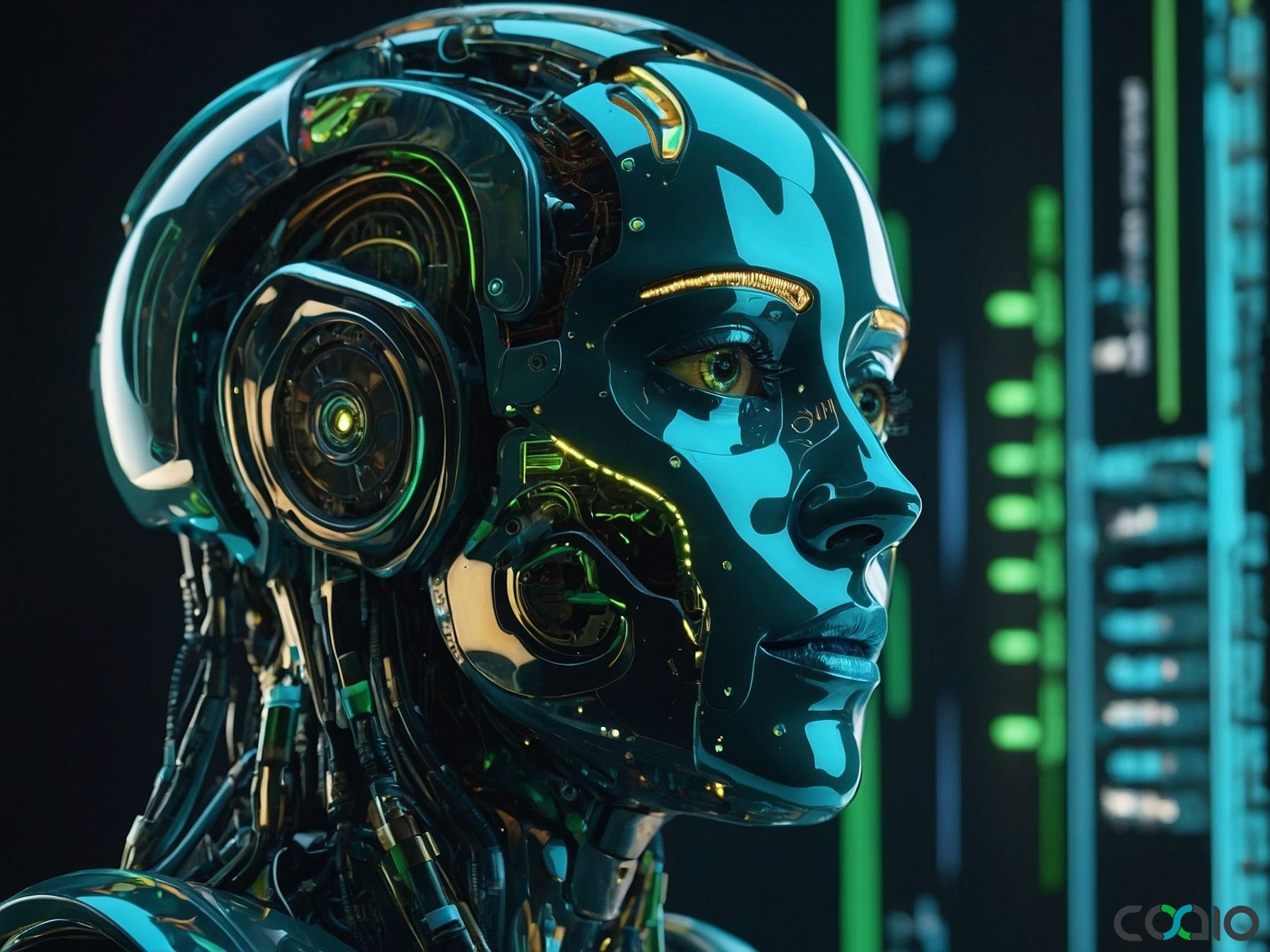
Revolutionizing Software Development: Key Innovations and Ethical Challenges in 2025 Tech Landscape
As we step into the latter half of 2025, the software development industry continues to evolve at a breakneck pace, driven by advancements in AI, community-driven networks, and ethical dilemmas surrounding data usage. From celebrity-backed initiatives reshaping how we build and maintain digital infrastructure to ongoing debates about AI training and corporate restructuring, today’s news highlights the dynamic forces at play. This article delves into the latest developments, exploring their implications for developers, startups, and tech enthusiasts alike, all while drawing connections to broader trends in the field.
The Rise of Community-Owned Networks in Software Development
One of the most exciting stories breaking this week involves NBA champion Tristan Thompson partnering with World Mobile to launch Uplift, a community-owned network designed to democratize internet access. This initiative isn’t just about connectivity; it’s a prime example of how software development is being leveraged to create inclusive, scalable infrastructure. Uplift allows subscribers to contribute directly to network expansion at the neighborhood level, with local “AirNode operators” earning revenue by hosting nodes. This model relies heavily on custom software for managing decentralized networks, ensuring seamless integration of user contributions and revenue sharing.
At its core, Uplift represents a shift toward community-driven development practices, where software is built not in isolated corporate environments but through collaborative efforts. Developers are increasingly using blockchain and peer-to-peer technologies to enable this, making it easier for everyday users to participate in network maintenance. For instance, the platform’s software must handle complex algorithms for resource allocation and security, drawing from open-source tools that prioritize accessibility. This approach could inspire a new wave of applications in software development, particularly for startups looking to build cost-effective, user-centric systems.
The launch, detailed in a recent TechCrunch article, underscores the potential for software to address real-world problems like digital divides in underserved areas Read more. As developers tackle these challenges, they’re pushing the boundaries of what’s possible with modern frameworks, such as those involving Web3 and decentralized apps (dApps). This evolution highlights the need for robust project management and risk identification in software development, especially when scaling community-based projects.
Trusted Social Communities and the AI Era’s Impact on Development
In the realm of social platforms, Digg founder Kevin Rose is making headlines with his vision for a revamped Digg, emphasizing the creation of trusted online communities amid the rise of AI. This development is particularly relevant for software engineers, as it addresses the growing challenge of distinguishing human interactions from bot-generated content. Rose’s platform aims to function like Reddit but with innovative twists, such as enhanced moderation tools and AI-driven algorithms that prioritize authenticity.
Software development plays a pivotal role here, with developers needing to integrate advanced machine learning models to detect and mitigate AI bots. This involves building sophisticated natural language processing (NLP) systems and verification mechanisms that ensure user trust without compromising privacy. The new Digg platform could set a precedent for how social software is designed in an era where AI is ubiquitous, potentially influencing tools like content recommendation engines and community management systems.
As reported by TechCrunch, Rose’s approach comes at a time when bots are nearly indistinguishable from humans, raising ethical questions about AI’s role in social dynamics Read more. For software developers, this means a focus on creating secure, transparent codebases that can adapt to evolving threats. It’s a reminder of how AI integration in software development can enhance user experiences while also introducing complexities in data handling and algorithm bias. Startups venturing into this space might benefit from services that streamline development processes, ensuring high-quality outcomes with minimal risks.
Corporate Restructuring and Its Effects on Software Teams
Shifting gears, YouTube’s announcement of a “voluntary exit program” for its US staff sheds light on the human side of software development in big tech. According to an internal memo from CEO Neal Mohan, this program is part of broader efforts to streamline operations amid economic pressures. While not directly about code or algorithms, this move has ripple effects on software development teams, as layoffs and voluntary exits can disrupt project timelines and innovation.
In the software industry, such restructurings often lead to a reevaluation of team dynamics and resource allocation. Developers may face increased workloads or shifts in priorities, prompting a need for efficient project management tools and outsourced expertise to maintain productivity. This story, covered by TechCrunch, highlights how economic decisions in tech giants influence the broader ecosystem Read more. For the development community, it’s a call to adapt, perhaps by leveraging remote teams or outsourcing to keep projects on track without overburdening in-house staff.
Ethical Debates in AI Training and Software Innovation
A contentious issue dominating discussions this week is Meta’s denial of allegations that it used pirated content, including adult material, to train its AI models. Meta claims these downloads were for “personal use,” dismissing a lawsuit as unfounded. This controversy touches directly on software development ethics, particularly in how companies source data for AI training datasets.
Developers working on AI projects must navigate a minefield of legal and moral considerations, ensuring that training data is ethically sourced and compliant with regulations. This incident underscores the importance of robust competitor research and risk identification in software development, as companies like Meta face scrutiny over their practices. The Ars Technica report provides deeper insights into the implications for AI ethics Read more.
In response, the industry is seeing a push toward more transparent and accountable software development methodologies. This could involve adopting frameworks that prioritize data privacy and ethical AI, ultimately leading to more trustworthy applications. For developers and startups, this serves as a cautionary tale about the long-term impacts of shortcuts in the development process.
Space Technology’s Intersection with Software Development
Finally, while not purely software-focused, the excitement around the International Space Station astronauts preparing to open a “golden treasure box” from Japan highlights how software underpins even the most adventurous tech endeavors. This cargo, delivered via a spacecraft, includes experiments that rely on advanced software for data analysis and simulation in space environments.
Software development in space tech involves creating resilient systems that can operate in extreme conditions, from orbital mechanics simulations to real-time communication protocols. The astronauts’ enthusiasm, as quoted in Ars Technica, reflects the optimism for future innovations Read more. This story illustrates how software is the backbone of exploratory missions, enabling everything from payload management to scientific research.
As we wrap up this overview of October 30, 2025’s tech news, it’s inspiring to think about how these developments pave the way for a future where software drives positive change. Imagine a world where innovative networks like Uplift connect communities effortlessly, and AI-powered platforms foster genuine interactions—much like how a dedicated partner could help turn bold ideas into reality with smart, efficient strategies that minimize risks and maximize impact.
As the tech landscape evolves, so does the dream of empowering creators. Picture a scenario where founders, whether tech-savvy or not, can bring their visions to life without getting bogged down by the nitty-gritty of building teams. That’s the essence of a forward-thinking approach: envisioning success based on ideas alone, and providing a smooth journey from concept to launch with cost-effective solutions and user-friendly designs. This mirrors a commitment to helping innovators focus on what matters most, turning potential pitfalls into seamless progress.
About Coaio
Coaio Limited is a Hong Kong-based tech firm that specializes in outsourcing software development and building expert teams in Vietnam. We offer comprehensive services including business analysis, competitor research, risk identification, design, development, and project management, delivering high-quality, cost-effective software solutions tailored for startups and growth-stage companies, especially those in the US and Hong Kong markets. By partnering with us, you can streamline your tech projects, reduce risks, and create user-friendly designs that allow you to concentrate on your core vision without the hassles of in-house development.
 English
English
 Français
Français
 Español
Español
 廣東話
廣東話
 中文
中文
 日本語
日本語
 한국어
한국어
 العربية
العربية
 Deutsch
Deutsch
